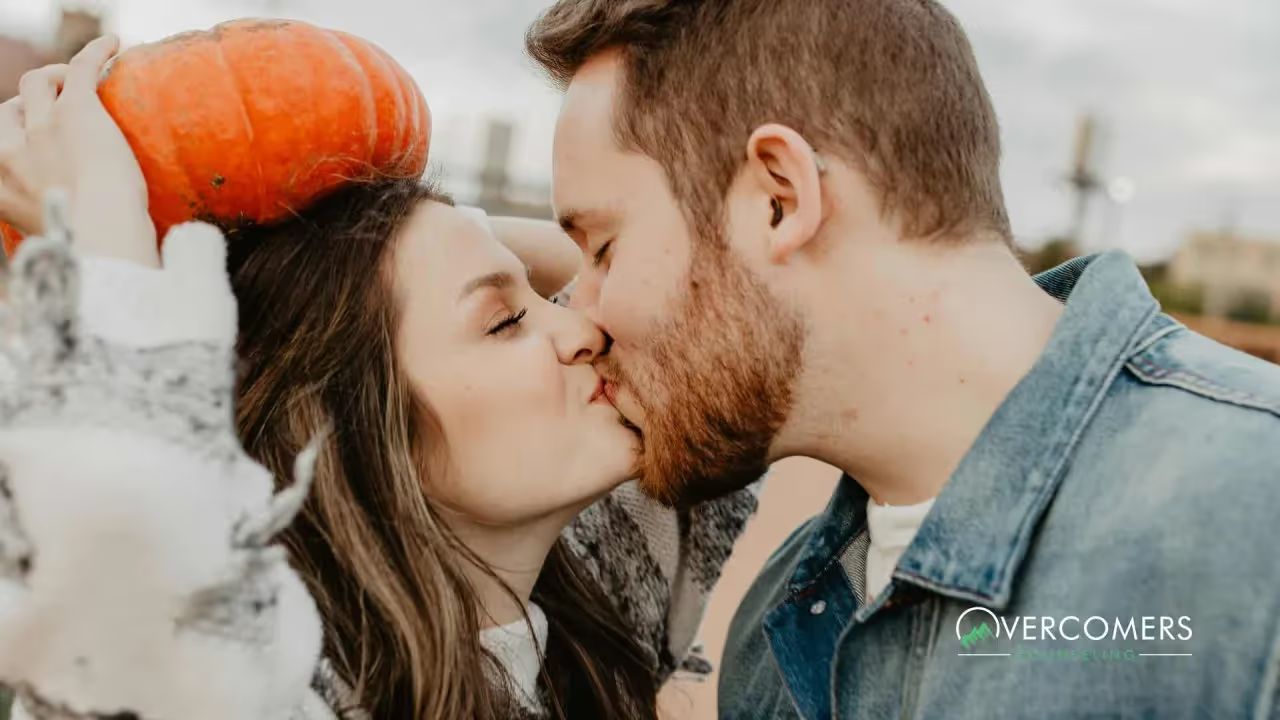IntroductionExpressing appreciation in a relationship is more than just good manners; it's the secret sauce that keeps love sizzling! Imagine your husband...

Expressing appreciation in a relationship is more than just good manners; it's the secret sauce that keeps love sizzling! Imagine your husband coming home after a long day, only to be greeted by genuine words of thanks and admiration. This simple act can transform his mood instantly and reinforce the bond between you two. Showing appreciation isn't just a nice-to-have; it's an essential ingredient for a happy, healthy partnership. Plus, who doesn't love hearing that they're doing a great job, especially from someone they adore?
Thanking him for specific actions, like tidying up, cooking dinner, or doing laundry, shows you notice and value his efforts. Be specific about what you're grateful for and offer genuine thanks instead of general comments.
Example - "Thank you for doing the dishes tonight. It means a lot to me and really helps to keep our kitchen clean and organized."
Whether it's a birthday, anniversary, or holiday, acknowledging the effort he puts into making these days special can mean a lot. This might include planning a celebration, buying thoughtful gifts, or organizing a memorable outing. It's important to let him know that his efforts are noticed and valued.
Example - "I really appreciate all the work you put into planning our anniversary celebration; it made the day unforgettable."
Unexpected gestures are great times to show your appreciation for your husband. These surprises show his thoughtfulness and care, making it a perfect chance to tell him you value his effort. Whether it's bringing home your favorite treat, planning a spontaneous date, or giving an unexpected gift, acknowledging these actions can strengthen your bond.
Example - "I really appreciate the surprise gift you brought me today. It was so thoughtful and made me feel special."
Verbal communication techniques are essential for effectively expressing appreciation and ensuring your message is clearly understood.
Here are some important aspects to consider:
Using clear and specific language - Being precise in your language helps convey your gratitude more effectively. Mention specific actions or behaviors that you appreciate.
Tone and body language - The way you say something can be just as important as what you say.
Use a warm and sincere tone, and complement your words with positive body language, such as smiling and making eye contact, to reinforce your message.
Timing your appreciation - Choose the right moment to express your gratitude. Offering words of appreciation during a quiet, relaxed moment can have a greater impact than doing so while rushing or during a stressful situation.
Appreciation notes and letters:
Taking the time to compose a thoughtful note or letter shows your husband how much you value him. The personal touch of a handwritten message can make a significant impact, as it signifies that you put effort into crafting something meaningful.
Text messages and emails:
In our busy modern lives, a brief message can significantly express gratitude. Sending a text or email throughout the day to recognize his efforts can boost his mood and remind him that he's on your mind.
Greeting cards for special occasions:
Birthdays, anniversaries, and Father's Day are great times to show appreciation with a thoughtful card. A card expressing thanks on these days can make the events even more special by showing how much he means to you.

Encouraging mutual appreciation in a relationship can build a deeper connection and stronger bond. One way to do this is by starting conversations about appreciation. Talking about how both partners can show gratitude better opens up communication and understanding. This might include simple acts like thanking each other for daily tasks or recognizing unnoticed efforts. Setting shared goals for appreciation is another good strategy.
Agreeing to specific goals, like saying "thank you" more often, helps build a habit of gratitude. Celebrating milestones of appreciation can also reinforce positive actions and show the benefits of mutual recognition. Looking back on how appreciation has strengthened your relationship can motivate you to keep these practices, showing that small acts of gratitude can lead to deeper emotional closeness and satisfaction.
Encouraging mutual appreciation in a relationship can greatly improve connection and strengthen the bond between partners. Starting conversations about gratitude, setting goals for expressing thanks, and celebrating appreciation milestones can help couples make recognizing each other's efforts a regular habit. Simple acts like acknowledging daily tasks or unnoticed efforts can build a foundation for open communication and understanding.For couples looking to deepen their connection further, seeking professional help can be beneficial. Overcomers Counseling offers specialized couples therapy that can guide partners in developing healthy communication patterns and nurturing their relationships. Investing in such support can be a valuable step towards a more fulfilling and resilient partnership.
It's common for people to have occasional worries or doubts in their relationship. However, if you find yourself constantly overthinking or obsessing about your relationship to the point where it's affecting your daily life and causing you significant distress, it may be helpful to seek support from a therapist or counselor.
There are many different signs of codependency, but some common ones include: feeling responsible for your partner's happiness or well-being, enabling your partner's bad behavior, feeling like you can't function without your partner, and being overly dependent on your partner.
The frequency of couples counseling sessions may vary depending on the specific issues being addressed and the recommendations of your therapist. Typically, couples attend weekly or biweekly sessions, especially during the initial phase of therapy. As progress is made, session frequency may decrease to provide the couple with opportunities to practice their new skills independently.
It's normal for feelings to change over time. Relationships go through ups and downs, and it's common for feelings of love and passion to fluctuate.
The first step is to take responsibility for your actions and apologize. Next, be honest with your thoughts and feelings. Show that you're willing to change and be a better partner. Finally, set some Trust is essential for a happy and healthy marriage. It allows couples to feel safe and secure with each other. Without trust, couples may feel anxious, resentful, and disconnected from one another. to help prevent future hurt. Remember to be patient as it takes time to rebuild trust.
Some common marriage problems include communication difficulties, financial stress, and infidelity.